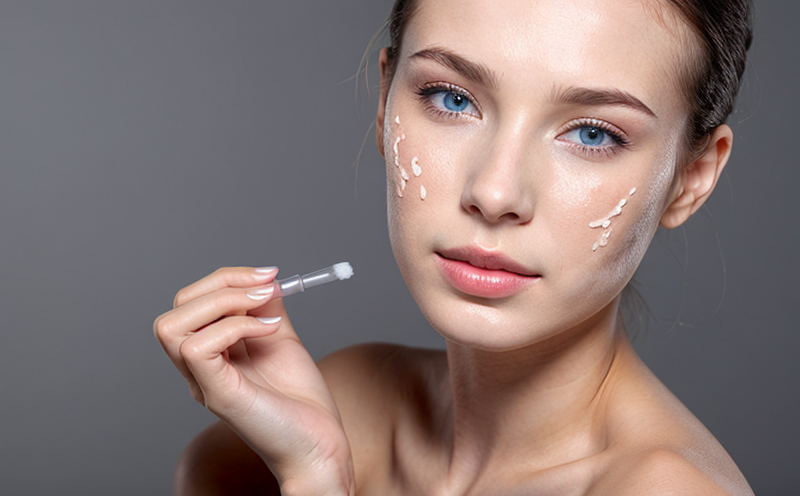Irritation Testing in Leave-On Cosmetic Products
When it comes to leave-on cosmetic products such as lotions, creams, and facial serums, irritation testing is crucial. These products are designed to remain on the skin for extended periods after application, making their potential to cause irritation a significant concern.
The primary objective of this testing is to ensure that these products do not elicit adverse reactions when used as intended by consumers. Irritation can manifest in various forms including redness, itching, swelling, and even more severe conditions if left unaddressed. Therefore, ensuring the safety and efficacy of leave-on cosmetic products through rigorous testing is a fundamental responsibility for manufacturers.
Testing protocols are based on international standards such as ISO 10735-2:2012, which provides guidelines for conducting patch tests to assess skin irritation potential. This standard outlines detailed procedures that include selecting appropriate test subjects, preparing specimens according to specific criteria, and interpreting results accurately.
One of the key aspects of irritation testing in leave-on cosmetic products involves understanding how different ingredients interact with various skin types. For instance, certain preservatives or fragrances might be well-tolerated by one individual but could cause irritation in another due to differences in sensitivity levels. By conducting thorough tests, manufacturers can identify potential irritants early on and make informed decisions about ingredient substitutions if necessary.
Another critical factor during the testing process is ensuring that the chosen test subjects are representative of diverse populations. This ensures that any findings obtained from these studies will hold true across different demographics. Additionally, proper specimen preparation plays a vital role in obtaining accurate results; improper handling could lead to misleading conclusions about product safety.
Once tests have been conducted and analyzed according to specified criteria outlined by relevant standards, manufacturers can then decide whether further adjustments are needed before releasing the final formulation into marketplaces worldwide. Proper documentation of all testing activities is essential for compliance purposes as well as maintaining transparency throughout development processes.
In summary, irritation testing in leave-on cosmetic products serves an indispensable role in safeguarding consumer health and wellbeing while also protecting brand reputation through adherence to stringent quality control measures.
Why It Matters
The importance of conducting thorough irritation testing cannot be overstated. Consumers expect their skincare and beauty products not only to deliver the promised results but also to do so without causing discomfort or harm. Manufacturers must therefore ensure that every component of a leave-on cosmetic product has been carefully evaluated for its potential to irritate skin.
From an ethical standpoint, ensuring that consumers use safe products is paramount; it reflects positively on both individual companies and the entire industry as a whole. Regulatory bodies around the world enforce strict regulations regarding product safety standards to protect public health interests. Compliance with these requirements can prevent costly legal disputes or recalls later down the line.
Moreover, successful completion of rigorous irritation testing can significantly enhance brand image by demonstrating commitment to consumer welfare and quality assurance practices. This fosters customer trust which is essential for long-term success within competitive markets.
- Protects Consumer Health: Ensures that products meet strict safety requirements before reaching end-users.
- Enhances Brand Reputation: Establishes a reputation for reliability and integrity among customers.
- Avoids Legal Issues: Minimizes risks associated with non-compliance or product liability claims.
Ultimately, investing in comprehensive irritation testing helps to build lasting relationships between brands and consumers while maintaining high standards of manufacturing excellence.
Customer Impact and Satisfaction
Conducting thorough irritation testing has several benefits for customers. Firstly, it ensures that they are using products designed to be safe even after extended exposure periods. Secondly, satisfied customers are more likely to recommend these products positively to friends and family members who may also seek similar skincare or beauty solutions.
Avoiding adverse reactions due to product use contributes significantly towards enhancing customer satisfaction levels. When consumers trust that they won't experience any negative side effects from their chosen brands, loyalty increases naturally. This leads to higher repeat purchases and potentially new customers drawn in by positive word-of-mouth referrals.
Moreover, satisfied clients contribute positively to a company’s bottom line through increased sales revenues and reduced costs associated with customer service issues or returns resulting from unsatisfactory experiences.





